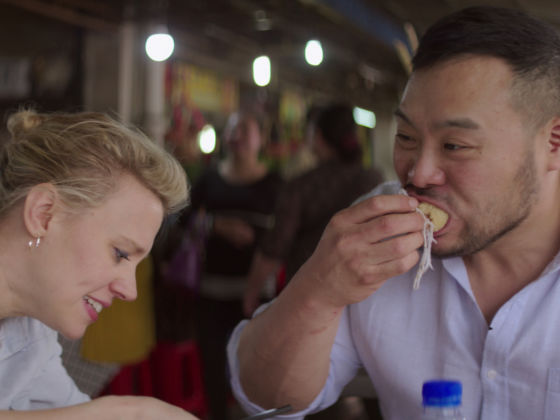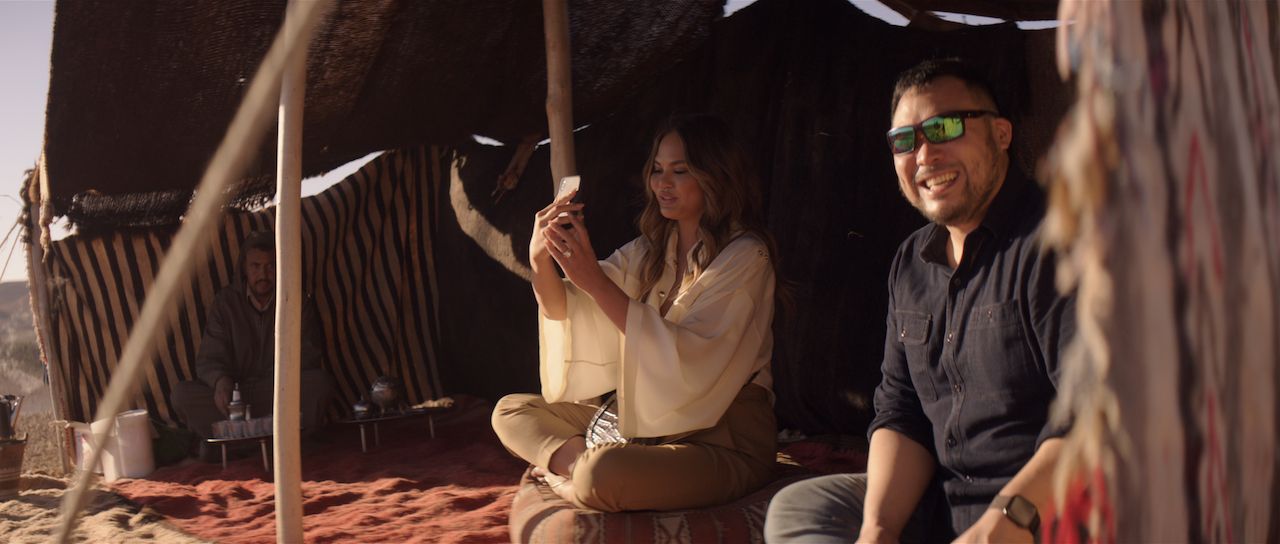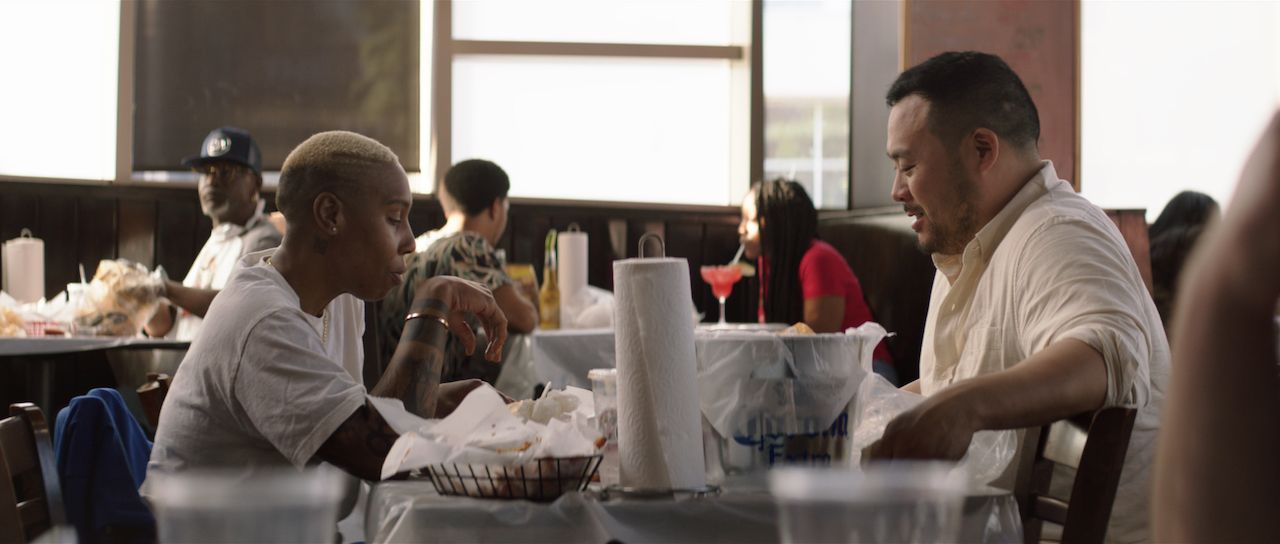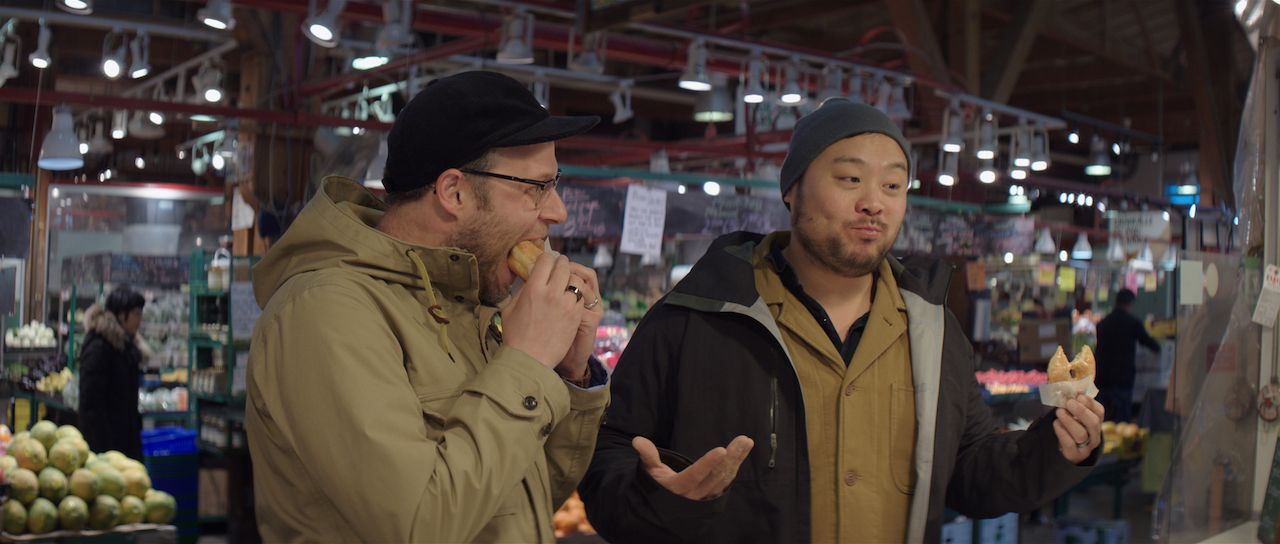Anthony Bourdain’s television shows No Reservations and Parts Unknown were, on paper, supposed to be about food. The chef-turned-globe-trotter traveled the world trying cuisines unfamiliar to many Americans, offering his witty and insightful commentary along the way. Sounds like a pretty straightforward premise, but the Emmy- and Peabody-award-winning shows ended up remaking the travel docu-series genre.


With ‘Breakfast, Lunch, and Dinner,’ David Chang Proves We Don’t Need a ‘New’ Anthony Bourdain
It’s difficult to overstate Bourdain’s influence: He merged food and politics in the public consciousness, let marginalized communities speak for themselves and on their own terms, and his fearless adventurer’s spirit allowed him to be open, generous, and empathetic to everyone he encountered, from Houston to Lebanon. When he committed suicide in June 2018, it seemed there was no, and would never be any, natural inheritor of the new entertainment landscape he had created.
For a moment, it seemed as though Gordon Ramsay might take up the mantle. His National Geographic show Uncharted dropped the celebrity chef in remote corners of the world, where he learned to cook the local cuisine. But critics called out his arrogance and hotheadedness, and Ramsay himself openly rejected the comparison to Bourdain. Meanwhile, Samin Nosrat miraculously pulled away from Bourdain’s long shadow, creating the food and travel show Salt Fat Acid Heat on her own terms, to much fanfare and acclaim.
So it is to David Chang we now turn. Chang, it’s worth restating on the off chance you aren’t aware, has by now achieved icon status in the culinary world. His Momofuku restaurants have remained among the most popular in New York City for more than a decade (he now has outposts in Las Vegas, Los Angeles, and Toronto), and he helped launched Christina Tosi’s dessert palace Milk Bar. It seemed inevitable that he would venture onto our television screens.
His first show, Ugly Delicious, examined the cultural significance and history of popular dishes like fried rice, pizza, and tacos. On October 23, he’ll debut a new show called Breakfast, Lunch, and Dinner. In each episode, Chang travels to a different city accompanied by a celebrity companion (Seth Rogen and Chrissy Teigen, among others) where the pair shares — get this — breakfast, lunch, and dinner.

Photo: Netflix
It will be tempting to immediately and fervently compare Chang to Bourdain, and, after watching, some of those comparisons will be earned: Chang copies Bourdain’s signature voice over narration, and there are cinema references peppered throughout from Apocalypse Now to The Breakfast Club to Pulp Fiction. (Bourdain often spoke about how his love of film influenced his shows, and film was frequently referenced in Parts Unknown.) In these ways, it’s clear that with Breakfast, Lunch, and Dinner, Chang is at least subtly paying homage to Bourdain.
Much like Bourdain, Chang is a fearless conversationalist. He asks for vulnerability from his guests and plows into sensitive territory without a hint of hesitation. The results are surprisingly moving. Over a seemingly innocuous breakfast at a diner in Los Angeles, Chang gets Lena Waithe to speak passionationaly about the Middle Passage, Trayvon Martin, the resilience of black people, and their ability to make beautiful art from unspeakable tragedy.
In a later episode, while eating lunch at a bustling food market in Phnom Penh with Kate McKinnon, the Saturday Night Live actress admits that she doesn’t think she’s a very good writer. Chang responds with this gut punch of a line: “I fundamentally don’t believe I’m talented at anything because I have to work so much more than anyone else.” Later, they try to unravel the nature of happiness. It’s deep stuff, and Chang doesn’t shy away from it.

Photo: Netflix
Chang dispenses with the filter for this series, and the risky move works in his favor. Instead of Ramsay’s hypermasculine posturing, we get a compassionate exploration of Chang’s, and his guest’s, interior lives. Bourdain focused on exteriority — his surroundings, the atmosphere, culture, and communities of his destination. Chang seems much more interested in examining the self.
Chang’s on-camera persona varies greatly from Bourdain’s, too. I think it’s fair to say that both exude awkwardness and seem uncomfortable in social situations. Yet Bourdain had a certain charisma that made him seem both approachable and intimidating, a guy you’d want to have a beer with but also felt compelled to impress.
Chang lacks that quality, but it doesn’t hurt him. He makes up for it with his radical openness, his ability to ply his guests with good food, divulge his own insecurities, and then go silent while the other person spills their guts. Is his guest in on the scheme? It’s hard to say, but either way it makes for good television. In one particularly intimate moment, Chang gives Seth Rogen the space to explain why his worst movie flopped — while sitting on a park bench.
There isn’t much cultural exploration of the city on this show, which is the biggest departure from Bourdain’s style (though there is at least one short scene in each episode featuring a local expert dedicated to examining some of the city’s history). Breakfast, Lunch, and Dinner is more of an ongoing, meandering conversation about art, fame, weed, marriage, and especially diversity — in food, culture, and everything else — between Chang and his guest, with their destination as the backdrop.
It’s smart of Chang to steer clear of any in-depth cultural analysis. His strength lies in using food as a way to get people comfortable enough to reveal personal truths. The dinner table is the scene of so much interpersonal drama, for the famous and non-famous alike, the scene of confrontations, revelations, announcements, and celebrations. Chang is playing on that idea — that anyone will reveal their secrets if you feed them well enough.

Photo: Netflix
Despite their very obvious differences in approach, there will likely be a rush to call Chang Bourdain’s successor. It’s a comparison that Chang won’t be able to escape, which is not entirely fair. Chang has more than earned the right to create food-related entertainment without the spectre of Bourdain’s legacy hovering over him. He is clearly staking his own territory in the world of travel show hosts.
As an Asian person of color, Chang has been open about facing racism everywhere from Chinese restaurants to the grocery store. While smoking a joint on the sidewalk of Vancouver with Rogen, he recalls friends mocking him for how his mom’s Korean cooking smelled.
“It’s possible this TV show exists because of this shit,” Chang says a few moments later.
Given that revelation, it’s telling that Chang and his guests frequent Asian restaurants (and that the finale takes place in Cambodia) and that he returns to the topics of diversity and discrimination in many of the ensuing conversations. Chang’s background and personal history created the lens through which he experiences food, restaurants, and new cities — which is of course totally different from Bourdain’s lens. That’s a good thing. We desperately need diverse perspectives in not just food but television and travel too.
Chang shouldn’t have to be the new Bourdain; he should just be himself. Yet Bourdain and Chang do have much in common: Both build friendships and foster intimacy through food, and they seem to share an insatiable curiosity — to learn, to eat, to explore. They are both superb interviewers too, able to draw out the most fascinating details from their subjects. There might be a fair comparison to be made between the two men, but Chang gracefully differentiates himself from his predecessor.
It’s okay if there no one to carry Tony’s torch (we affectionately refer to him by his first name in my house). That doesn’t mean we’ve forgotten him. It just means that someone new has stepped up, with his own ideas about what it means to commune over food, better suited to our times. Chang is preserving his friend’s memory, but he’s building on it, too. I think Tony would have wanted to us move forward, to be and do better. And Chang, in all his flawed, socially awkward glory, is helping us do just that.